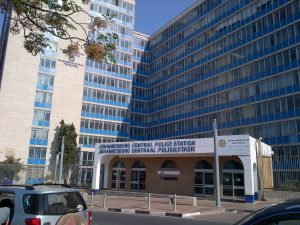The unemployment figures released yesterday by StatsSA are cause for
great concern given that joblessness has now increased to 25.5% making
this the highest unemployment rate since 2008.
This concern is further compounded by the finding that the expanded unemployment figure, which includes persons who have stopped actively seeking employment stands at 35.6% Unemployment must be thoroughly addressed and investor confidence must be restored. President Zuma has failed outright to give hope and direction and does not seem to have a vision.
At the heart of this crisis is government’s failure to create a conducive and enabling environment for the private sector to create jobs. South Africa needs to focus and shift speedily to economic stability. There can be no growth in the presence of chaos and instability. Small businesses and co-operatives need to take centre
stage.
The IFPYB is also concerned that the spending pattern of the National Treasury has taken a nose dive from 2008/09 when it stood at 99.6% to 89.6% in 2011/12.
The fact that unemployment stands at a staggering 25.5% speaks to a failing system and failing government. The lack of speed and urgency in dealing with unemployment is no different from the dark days of HIV/Aids denialism. The IFP has clear action steps which must be prioritised as a matter of urgency; we must seize the opportunity and offer young people vision, hope and direction. It is high time that we take the bull by the horns and deal decisively with the challenge of
youth unemployment.
To grow our country’s economy and create jobs, the IFP proposes that:
- Balance job creation and job protection by revising labour laws to allow more flexibility. This will generate investment, new jobs and growth.
- Take politics out of the economy – union politics should not hold our economic future ransom.
- Focus on developing skills suitable for today’s job market by funding training programmes, apprenticeships and learnerships.
- Support sustainable small and medium sized businesses(SMMEs) and reward them for employing and training women, youth and those who are differently abled.
- Create a mentorship programme through which local and international business people can help young business owners learn to manage and grow sustainable ventures.
- Establish Special Economic Zones (SEZs), particularly in rural areas, to help communities become self-sustainable and create tax incentives and low tax investment zones in these areas to stimulate growth, jobs and development.
- Partner with the mining and related sectors to refine raw materials in South Africa and build our processing and manufacturing industries.
- Encourage new and current farmers to grow cash crops for export.
- Fund an experience-embracing FET learning programme with the public, private and third party sectors.
- Invest in the future of our children by ensuring that within the next ten years every school has one counsellor, librarian, nurse, sports teacher, cleaner, library, laboratory and internet connection.
The patience of young people is fast dwindling and their frustration fast rising. The 1994 dream of prosperity and a “better life for all” is dead. South Africans are struggling daily to make ends meet.
The struggle for freedom and democracy against apartheid is rendered in vain as even 20 years post-apartheid life remains a struggle for the majority of our people. South Africans did not struggle against apartheid only to now live in a perpetual struggle in a free and










